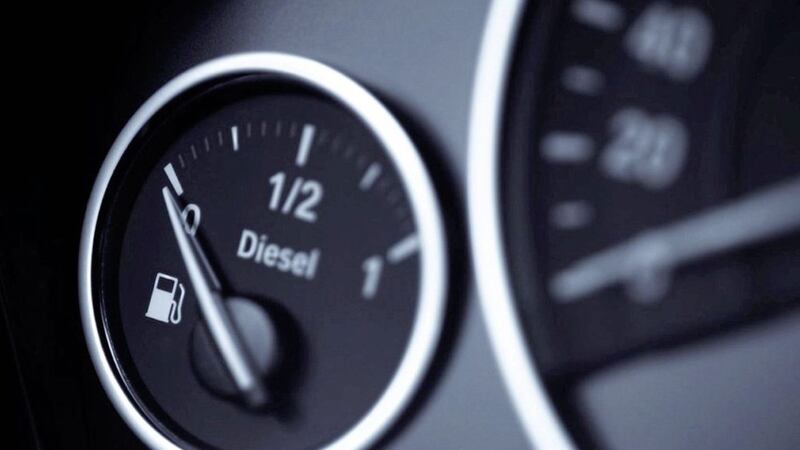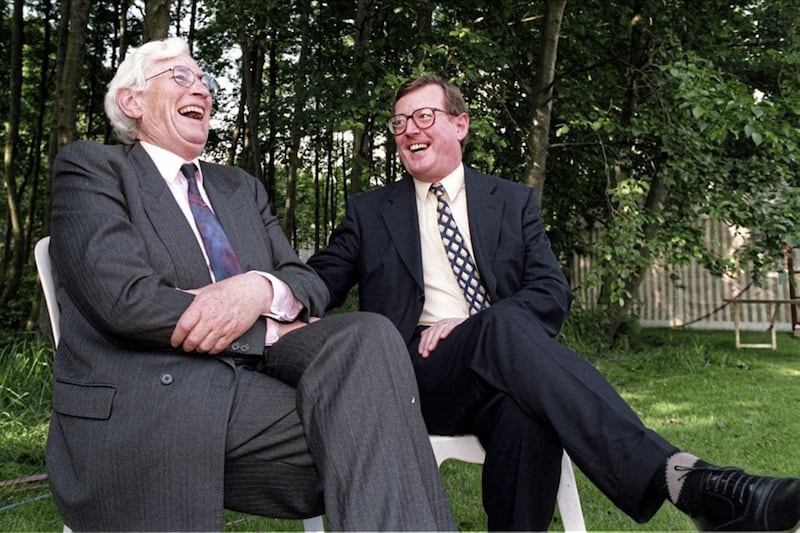DIESEL, so beloved of motorists north and south, is mired in an existential crisis.
The cars have never been better - cheaper to run, nicer to drive, less polluting - yet diesel registrations are in freefall.
'Sucking diesel' could soon become a relic. Hopefully sense will prevail before that, for much of the rhetoric against diesel is wrong-headed nonsense. It is also harming our environment.
Just one in three new cars is now a diesel, according to the Society of Motor Manufacturers and Traders. It adds up to a 23.5 per cent year-on-year decline which shows no sign of slowing.
The picture is echoed in the Republic, where diesel has traditionally heavily out-sold petrol.
Data from the Society of the Irish Motor Industry shows that so far this year, diesel demand has dropped back by 17 per cent.
Anecdotally, Northern Ireland motorists still have a soft spot for diesel - but several dealers and others in the trade have told me that demand has slackened, even if it has not collapsed in the same way that it has in the rest of Europe.
All of this might make some sort of rational sense if modern diesel cars were rubbish and the alternatives were decisively better.
But this is not necessarily the case.
It is true that the efficiency of petrol engines has greatly improved in recent years.
Hybrids, which pair a traditional engine - almost always petrol - with a confection of batteries and electric motors are increasingly popular. They now make up a little over 4 per cent of new car registrations.
The rapid collapse in diesel sales might be a major financial headache for car-makers, but it is also contributing to an environmental problem for all of us
With around 0.5 per cent share, electric vehicles - EVs - represent only a tiny proportion of the market.
Europe's bestselling battery car in January was the Renault Zoe, with 1,597 registered. A total of 8,500 electric cars were registered, paltry in an overall market of 1.28 million vehicles. For further context, Europe's most popular car in January was the Volkswagen Golf, with more than 43,000 sold.
The industry is gradually addressing range anxiety - the fear that your battery car will run out of juice and leave you stranded - but significant problems still need to be answered if the EV panacea is to become a reality.
These include the availability and resilience of charging points, as well as questions over where all the electricity to replenish all the new batteries is going to come from.
Battery cost and the ability to make enough of them needs to be addressed. Mining the metals used in their construction brings environmental challenges, too.
It is inevitable that battery cars will become more prevalent - every other new car launched at this week's Geneva motor show was an EV, it seemed - but it is difficult to see them tipping into the mainstream in Northern Ireland soon.
The rapid collapse in diesel sales might be a major financial headache for car-makers, but it is also contributing to an environmental problem for all of us.
Manufacturers face massive fines if they fail to meet tough EU targets to reduce emissions of carbon dioxide, a heavy contributor to global warming.
The industry easily hit the 2015 target of 130g/km and while the 2021 threshold of 95g/km always looked challenging, it was confident of achieving it - until, that is, diesel's fall from grace.
As well as growing hybrid and battery car sales by 2021, diesel was an essential part of most mainstream manufacturers' plans.
Among their other attributes, diesel engines have CO2 emissions up to 20 per cent lower than their petrol counterparts.
In addition, the latest diesel engines are almost as clean as their petrol counterparts when it comes to emissions of the particulates and nitrogen oxides that have seen the fuel vilified.
A diesel-based CO2 strategy is, for many, in tatters in the wake of Volkswagen being exposed for cheating its emissions tests.
Diesel's decline means that average CO2 emissions in the UK actually rose, for the first time, last year, to 121g/km - making that 95g/km look practically impossible for many of Europe's biggest manufacturers.
Volkswagen, for example, had average CO2 emissions in 2017 of 119.6g/km, up 2g/km from 2016's level.
Hybrid-loving Toyota, which has announced it is going to stop selling diesel cars, has the lowest, at 101.2g/km, putting it within striking distance of the 2021 target. Peugeot, Citroen and Renault are also well placed.
It is the law of unintended consequences: rather than improve the environment, diesel doom-mongering has set back the fight against climate change.









